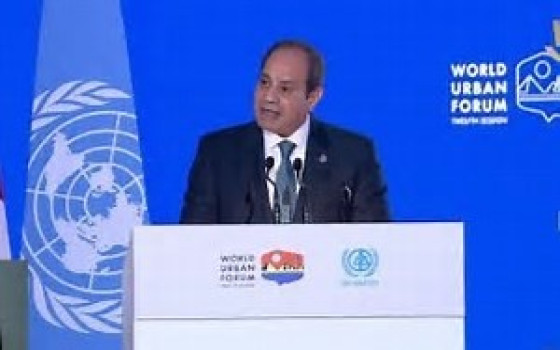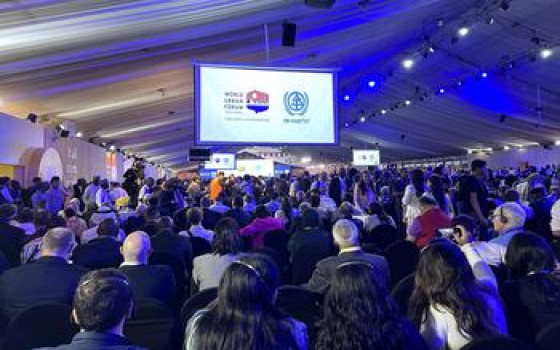The Egyptian President inaugurates the World Urban Forum under the title "Everything Starts Locally"... in order to mobilize efforts, work and support to implement the Charter for the Future

- Europe and Arabs
- Tuesday , 5 November 2024 10:10 AM GMT
Cairo: Europe and the Arabs
With the participation of delegates from more than 182 countries, the twelfth session of the World Urban Forum, organized by the United Nations Human Settlements Program (UN-Habitat), kicked off yesterday in the Egyptian capital, Cairo. This session is of particular importance because it was held after the adoption of the Charter for the Future in September.
Annacludia Rossbach, Executive Director of the Program, said that the World Urban Forum attracts more sectors and new stakeholders, "who are interested in the future of our planet and the crucial role that cities play in determining it." She said that "the Charter for the Future - which was adopted during the Future Summit at the United Nations headquarters - recognizes the importance of the housing and new cities agenda, and the importance of local and regional governments."
She pointed out that the Charter addresses the challenges and opportunities related to digitization and technology, "which are closely linked to our efforts to promote people centered in smart cities." Rossbach expressed hope that the discussions at the forum would help mobilize efforts, action and support to implement the Charter for the Future. Local level
The 12th World Urban Forum is being held under the theme: “Everything starts locally: Local action for sustainable cities and communities” to emphasize that solutions must begin where people live, work and build their lives.
In a video message to the Forum, UN Secretary-General António Guterres said that “real progress begins at the local level. On the ground. In communities and in people’s lives.” He added that local and regional authorities are an essential part of the answer to many issues and at all levels, including at the United Nations.
He stressed that local action is “the building blocks for the green, just and resilient cities of the future.” The Secretary-General also spoke about developing infrastructure and public services for all, “including women and girls.”
The voices of women and girls are more prominent at this session, as the Executive Director of the United Nations Human Settlements Programme announced that women represent more than half of the 400 speakers at the Forum, adding that “this is a gender-balanced World Urban Forum.”
Urban Challenges
At the opening of the forum in Cairo, Egyptian President Abdel Fattah el-Sisi said that this session comes at a critical time when the world is facing many crises and wars, which have devastating repercussions and effects on cities, residential areas and all aspects of life.
Palestinian President Mahmoud Abbas spoke at the opening, saying that the destruction in Gaza, the West Bank and East Jerusalem poses “many challenges that hinder sustainable urban development efforts in 60% of the West Bank and all of East Jerusalem.”
City Population
About 50 percent of the world’s population lives in cities, and this percentage is expected to rise to 70 percent by 2050. The shift to urban centers has a major impact on societies, cities, economies, climate change and politics.
Much of the growth will occur in Africa, where the population is expected to nearly double over the next 30 years. “Cities are home to 70 percent of the world’s population. While there are many opportunities, there are also challenges,” Ming Zhang, Global Director of the World Bank’s Global Department for Urban, Resilience and Land, told UN News. “The Forum is an event where all stakeholders come together to discuss the opportunities and challenges in cities and our homes.”














No Comments Found